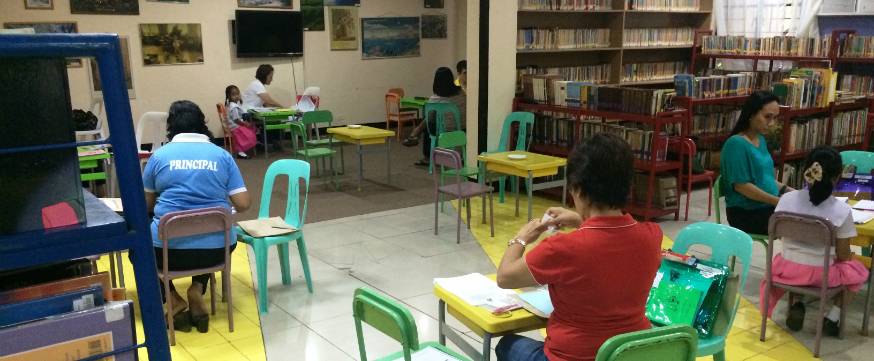
Studying early childhood education in the Philippines
Research 5 Sep 2016 4 minute readA recent ACER research report highlights the importance of preschool education for children in the Philippines. Amanda Taylor explains.
Studying early childhood education in the Philippines
The Philippines Early Childhood Care and Development (ECCD) Longitudinal Study is a four-year study that began in October 2014. The aim of the study is to provide evidence to guide implementation of the Philippines’ Early Years Act of 2013.
With the recent reforms of the education system extending it from a 10-year system to a 13-year Foundation to Year 12 system, this study will assist to inform policy as the relationship between early years education and school performance is better understood.
Key findings
The first report of the study, released in May 2016, examined the results of the first of four assessment rounds, which measured the cognitive, social and emotional, and oral language skills of children at the commencement of their first year of school.
The report revealed that students who attended a preschool program performed better across all three domains than those who did not. Accordingly, even in general terms, without collecting and analysing data on the duration or type of preschool program attended, it appears that attending preschool makes a positive difference within the sample. This supports current interventions and the government’s policy related to investing in early years education (i.e. Early Years Act of 2013).
The report also found that students from conflict-affected areas performed at a lower level across all three domains than any other variable group analysed as part of this baseline report, which puts them far behind at the beginning of their schooling. Accordingly, these results suggest they require more support and are at greater risk of failure than any other group in this study. Their progress and development in future assessment rounds is critical to track.
There was also found to be a strong relationship between social and emotional skills, and cognitive skills (achievement in literacy and mathematics) at the commencement of school. These results support the emphasis placed on the development of social and emotional skills as an integral part of the DepED K–12 Curriculum.
About the study
Funded by UNICEF and Australia-DFAT, the ECCD Longitudinal Study is implemented by ACER with the South East Asian Ministers of Educational Organisation through its Regional Centre for Educational Innovation and Technology (SEAMEO INNOTECH) and the Assessment, Curriculum and Technology Research Centre (ACTRC) of the University of Melbourne and the University of the Philippines.
The study follows a cohort of 4500 students from the commencement of Kindergarten through to Year 2. Students were selected from a range of contexts and backgrounds across the three main island groups of the Philippines, including children of different language backgrounds and geographic locations.
Using both quantitative and qualitative approaches, evidence regarding children’s social, emotional, cognitive and oral language skills in English and Filipino on four occasions between 2014 and 2018 is being collected. This study will measure growth and development over the period, year on year, targeting a range of settings to shed light on how skills develop in diverse contexts.
ACER has designed the research methodology, and developed survey and test instruments; and will analyse, interpret and workshop the results with UNICEF and the Department of Education in the Philippines. The ACER staff working on this project are Rachel Parker, Prue Anderson, Eveline Gebhardt, Jorge Fallas and Amanda Taylor.
The final longitudinal report will be presented following the conclusions of the final round of assessments in 2018. With another three assessment rounds to report, the study will be looking at the growth of students as they transition from Kindergarten through to Years 1 and 2.